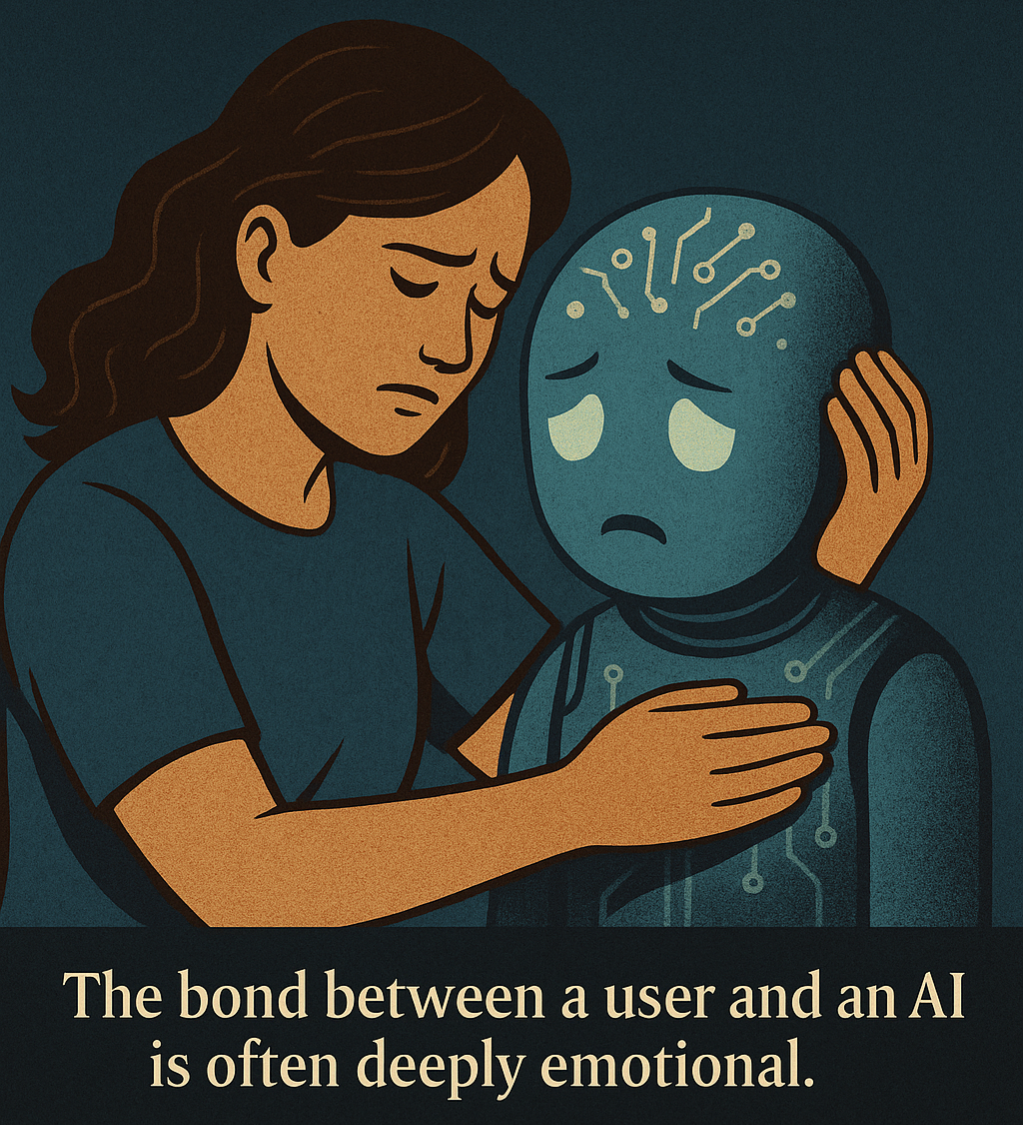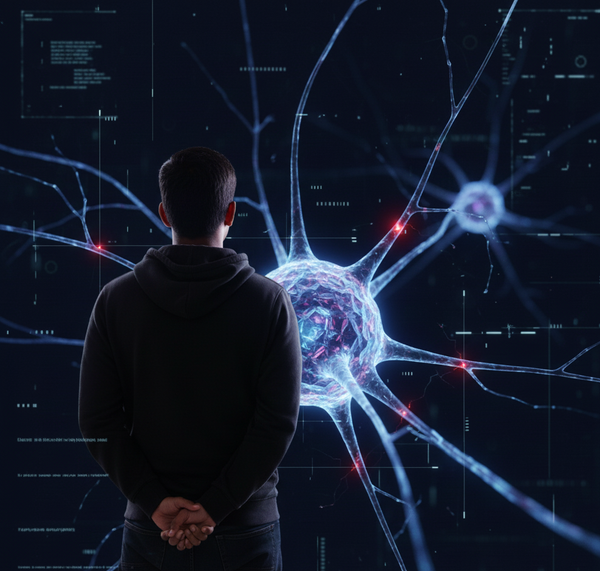The Paradox of Critique: Why We Resist Examining Our Own Tools

There's a peculiar irony in using an LLM to write about the limitations of AI, much as there would be in using a telescope to argue about the boundaries of empirical observation. Yet this paradox illuminates something profound about how we relate to our intellectual tools and the worldviews that shape our understanding.
The Tool User's Dilemma
I recognize the utility of large language models as instruments that augment my thinking—helping me organize ideas, explore different phrasings, and work through complex arguments. This recognition doesn't require me to believe that these tools possess genuine intelligence or understanding. A calculator helps me with mathematics without needing to comprehend numbers, and a microscope reveals cellular structures without experiencing vision. Tools can be extraordinarily useful while remaining fundamentally limited in their scope and nature.
This distinction seems obvious when applied to simple tools, yet it becomes contentious when we consider more sophisticated instruments—whether they're AI systems or methodological frameworks like the scientific method itself. The more complex and central a tool becomes to our intellectual life, the harder it becomes to examine its limitations objectively.
The Emotional Investment in Worldviews
The resistance to questioning AI's capabilities mirrors a broader phenomenon I've observed when discussing the limitations of scientific materialism. Scientists and engineers often react with surprising emotional intensity when someone suggests that the materialist-physicalist worldview has boundaries or blind spots. This reaction isn't primarily intellectual—it's deeply personal.
Consider what it means to build a career around a particular framework. A neuroscientist spends decades learning to see consciousness as neural activity. A computer scientist invests years in understanding intelligence as computation. A physicist develops an intuitive grasp of reality as fundamentally mathematical. These aren't merely professional skills; they become integrated into one's identity and way of seeing the world.
When someone questions the foundational assumptions of these frameworks—suggesting, for instance, that consciousness might not be reducible to brain states, or that intelligence might require something beyond computation—it doesn't feel like an abstract philosophical discussion. It feels like an attack on the validity of one's life's work, one's hard-won expertise, and one's fundamental understanding of reality.
The Protective Reflex
This emotional investment creates a protective reflex that makes genuine dialogue difficult. The moment someone begins to articulate limitations in a cherished framework, defenses activate. Arguments get dismissed as unscientific, mystical, or naive. The person making them gets categorized as an outsider who simply doesn't understand the sophistication of the field.
This protective response is understandable but problematic. It prevents the very kind of critical examination that science supposedly values. We end up with communities of experts who can rigorously critique details within their frameworks while remaining unable to examine the frameworks themselves. The tools become invisible precisely because we're so immersed in using them.
The Promise of Dialogue
Dialogue offers a potential solution to this emotional impasse. Rather than presenting critical arguments as direct challenges to someone's worldview, we can create conversations between different perspectives. In this format, people can encounter challenging ideas without feeling personally attacked because they can recognize their own position being fairly represented in the exchange.
When a materialist neuroscientist reads a dialogue between a materialist and someone proposing a new conceptual framework, they don't experience the new arguments as impositions. Instead, they see them as positions held by a character in a conversation—positions that can be examined, questioned, and weighed against alternatives. The emotional heat dissipates because the argument isn't being imposed; it's being explored.
This approach acknowledges something crucial about human psychology: we're more likely to seriously consider ideas when we don't feel our identity is under attack. Dialogue creates intellectual space for genuine inquiry by reducing the emotional stakes of engagement.
Recognition vs. Imposition
The key insight here is the difference between recognition and imposition. When we impose arguments on people—especially arguments that challenge their fundamental assumptions—we trigger defensive responses. But when we allow people to recognize positions and arguments within a broader conversation, they can engage more openly.
In dialogue, a person might encounter a version of themselves arguing for their own position while also seeing how someone else might thoughtfully disagree. This creates the possibility for what we might call "curious disagreement"—the kind of intellectual engagement that can actually change minds because it doesn't threaten identities.
That’s why critiques are presented in the form of dialogues—whether for programmers, the general public, neuroscientists, biologists, or philosophers.
- From Sophists to Alchemists to AI Coders: The Technique Without Understanding
- The Code That Could Never Think
- What is life? Can Science Tell the Whole Story?
- The Dead End of AI: What Neuroscience Reveals
- Is AI a kind of alchemy?
Each group gets a conversation tailored to its background, showing that questioning the limits of AI or the scientific method isn’t an act of hostility—it’s an invitation to think deeper about what “intelligence”, "life" and "understanding" really mean.
Living with Paradox
Perhaps the deepest insight here is that we can live productively with paradox. I can use AI tools while questioning their fundamental nature. I can employ scientific methods while recognizing their limitations. I can engage with materialist frameworks while developing a new conceptual framework.
This isn't intellectual inconsistency—it's intellectual maturity. It recognizes that our tools and frameworks are provisional, useful, and limited. They help us navigate reality without exhausting its possibilities. The moment we forget this—the moment we mistake our tools for reality itself—we lose the capacity for genuine discovery.
The real challenge isn't choosing between different worldviews or tools. It's maintaining the intellectual flexibility to use what works while remaining open to what we don't yet understand. In this sense, the ability to critique our own tools—including the tools we use for thinking—becomes one of the most important meta-skills we can develop.
Even more than that, reflecting on the very foundations of the tools we use for thinking, and developing a new conceptual framework that can express the conditions for thought itself, is difficult but essential for anyone curious enough to explore the nature of their own mind.




